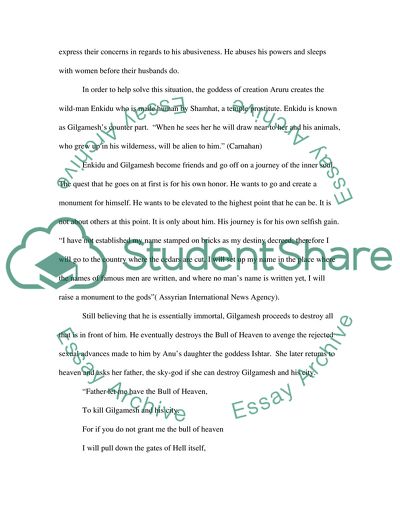Cite this document
(“Gilgamesh Essay Example | Topics and Well Written Essays - 1000 words”, n.d.)
Gilgamesh Essay Example | Topics and Well Written Essays - 1000 words. Retrieved from https://studentshare.org/miscellaneous/1545994-gilgamesh
Gilgamesh Essay Example | Topics and Well Written Essays - 1000 words. Retrieved from https://studentshare.org/miscellaneous/1545994-gilgamesh
(Gilgamesh Essay Example | Topics and Well Written Essays - 1000 Words)
Gilgamesh Essay Example | Topics and Well Written Essays - 1000 Words. https://studentshare.org/miscellaneous/1545994-gilgamesh.
Gilgamesh Essay Example | Topics and Well Written Essays - 1000 Words. https://studentshare.org/miscellaneous/1545994-gilgamesh.
“Gilgamesh Essay Example | Topics and Well Written Essays - 1000 Words”, n.d. https://studentshare.org/miscellaneous/1545994-gilgamesh.


